The greatest challenge to faith is, if God exists, how is it that evil exists? Why do bad things happen to good people?
Now in most religions, that is a challenge to faith. In Judaism, it’s exactly the opposite because it is the people with the greatest faith who ask this question most powerfully and most passionately. Abraham says, “Shall the Judge of all the earth not do justice.” Moses says, “Why have You done evil, God, to these people?” Jeremiah says, “God, I know you always win when we have an argument about justice but tell me, why do the wicked prosper?” The entire book of Job is dedicated to this question.
So why is it then, that in every other religion, evil is a threat to faith. Whereas in Judaism, the question of evil is in the very heart of faith. And that led to my definition of faith as protest. God created a world, a physical world that obeys physical laws. And because it obeys physical laws, there are such things as earthquakes and tsunamis, and natural catastrophes. You couldn’t have a physical universe without these disasters happening. It was only because matter coalesced and formed stars, and those stars eventually exploded, spreading stardust throughout the world, that they ever coalesced to become planets, one of which was the earth, on one of which life began. Without these natural disasters, there couldn’t be a physical universe.
Secondly, without giving space for human beings to commit acts of evil, we wouldn’t have freedom and therefore we couldn’t even do good. And therefore, God turns to human beings and says, “Look, I gave you freedom. I gave you a physical world. In such a world, bad things are going to happen. I cannot solve those bad things on My own because I gave you freedom and I gave you responsibility. And now, let us confront evil together.”
So in Judaism, the problem of evil is the simple statement of the human condition. That the world that is, is not the world that ought to be. And in that cognitive dissonance, faith is born. Not faith as acceptance. Faith as protest.
And the answer to “Why does evil exist?” is not a philosophical answer. It’s an action. If I do one good deed, feeding the hungry, healing the sick, righting an injustice anywhere in the world, I make the world that is a little closer to the world that ought to be.
And that is why the existence of evil, and protest against that evil, and the human responsibility that God has charged us with to fight that evil, is not the grit in the machine that wrecks faith. In Judaism, it is the machine that drives faith. We stand up and protest against evil by creating just societies, compassionate communities, and loving human relationships.
Judaism is God’s call to our responsibility.
SHARE
More from JInsider
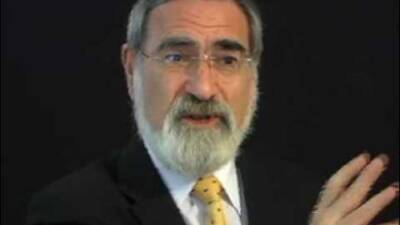
Rabbi Sacks on the Jewish Narrative
JInsider (March 2010)
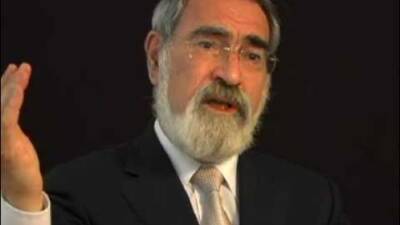
Rabbi Sacks on Future Tense Take Aways: Part 1
JInsider (March 2010)
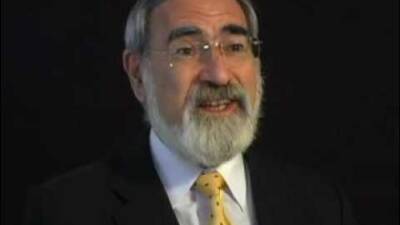
Rabbi Sacks on Future Tense Take Aways: 2
JInsider (March 2010)
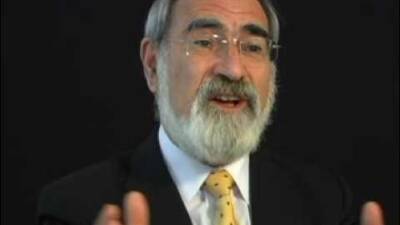
Rabbi Sacks on the Universal Jewish Story
JInsider (March 2010)
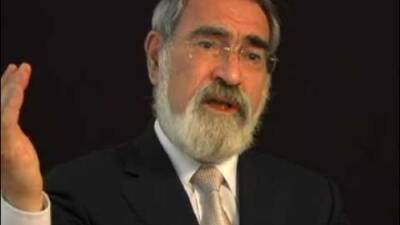
Rabbi Sacks on Eco-Judaism Roots
JInsider (March 2010)
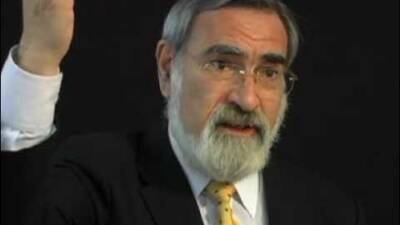
Rabbi Sacks on Peoplehood
JInsider (March 2010)
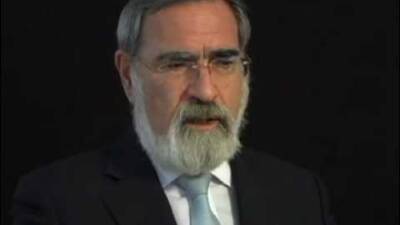
Rabbi Sacks on an Engaged Judaism
JInsider (March 2010)
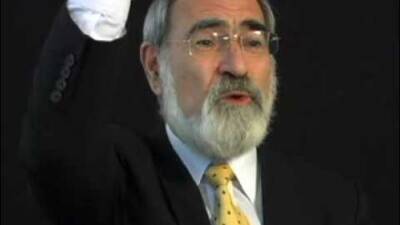
Rabbi Sacks on Charity Priorities
JInsider (March 2010)
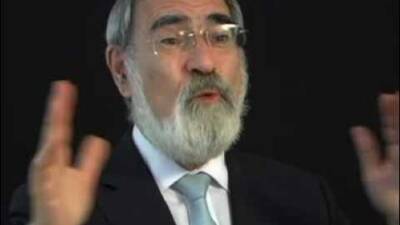
Rabbi Sacks on a Responsible Life
JInsider (March 2010)
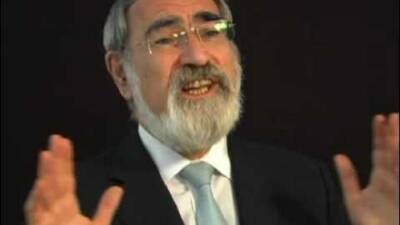
Rabbi Sacks on Reconciliation
JInsider (March 2010)
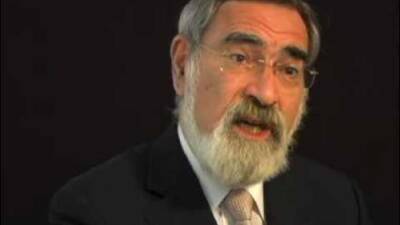
Rabbi Sacks on Community Conflict
JInsider (March 2010)
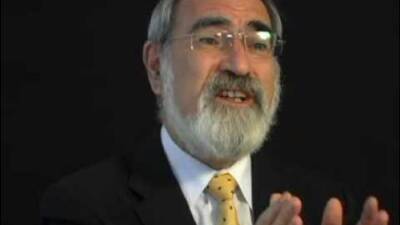
Rabbi Sacks on Particularism vs Universalism
JInsider (March 2010)
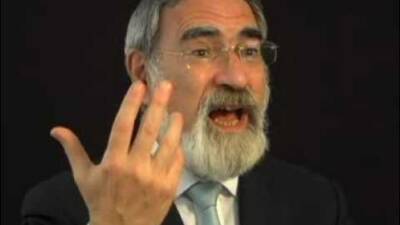
Rabbi Sacks on a Culture of Hope
JInsider (March 2010)
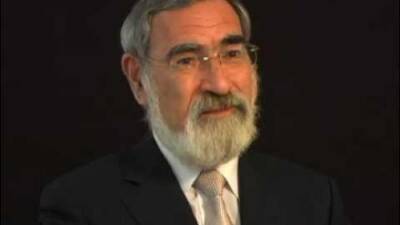
Rabbi Sacks on his Personal Hatikvah
JInsider (March 2010)
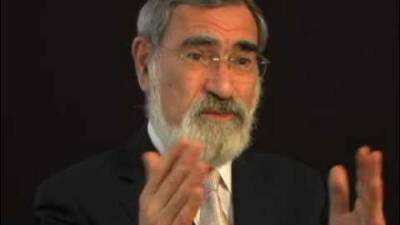
Rabbi Sacks on Israel and Jewish Society
JInsider (March 2010)
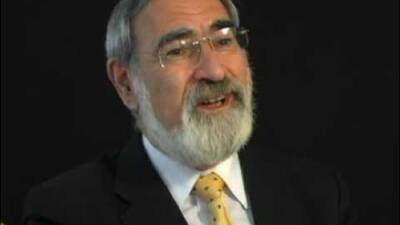
Rabbi Sacks on Torah in Today's World
JInsider (March 2010)
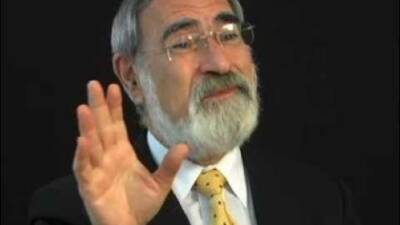
Rabbi Sacks on Prayer
JInsider (March 2010)
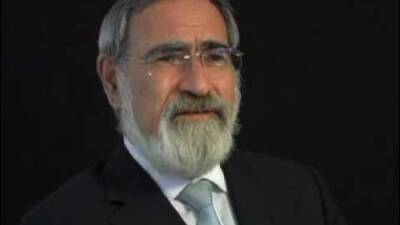
Rabbi Sacks on Indifference
JInsider (March 2010)
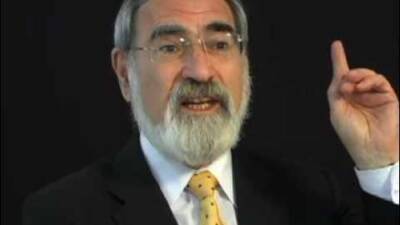
Rabbi Sacks on the Jewish Role in the World
JInsider (March 2010)
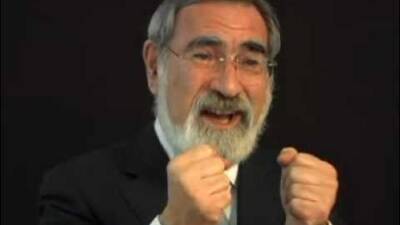
Rabbi Sacks on Torah and the Real World
JInsider (March 2010)
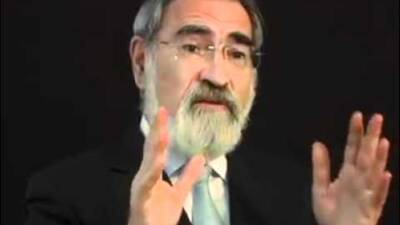
Rabbi Sacks on Free Market and Judaism
JInsider (March 2010)
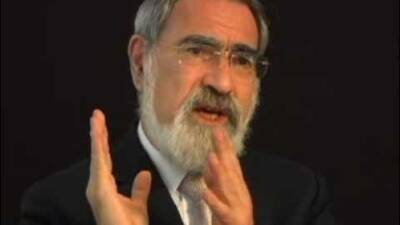
Rabbi Sacks on Antisemitism
JInsider (March 2010)
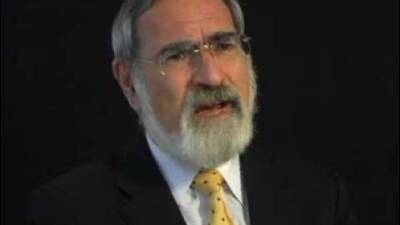
Rabbi Sacks on Future Tense
JInsider (March 2010)
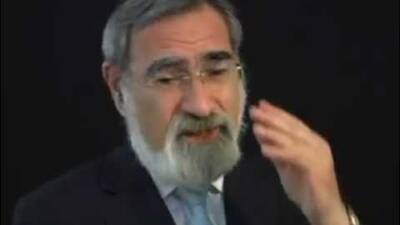
Rabbi Sacks on Love as Deed
JInsider (March 2010)
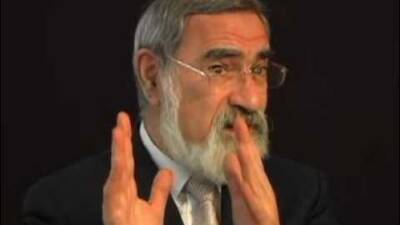
Rabbi Sacks on Combatting Antisemitism
JInsider (March 2010)
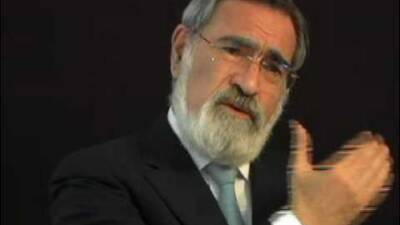
Rabbi Sacks on Material Loss
JInsider (March 2010)
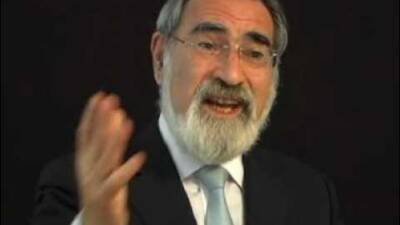
Rabbi Sacks on the Antidote to Materialism
JInsider (March 2010)
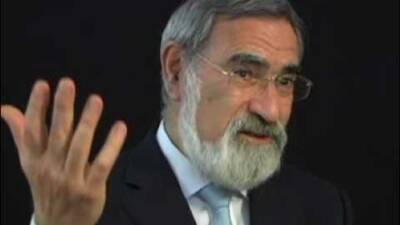
Rabbi Sacks on Parenting
JInsider (March 2010)
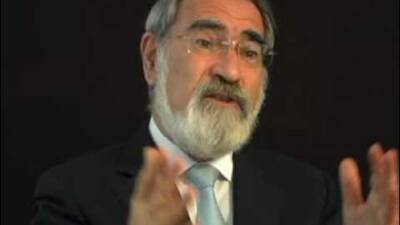
Rabbi Sacks on a Tzedakah Tale
JInsider (March 2010)
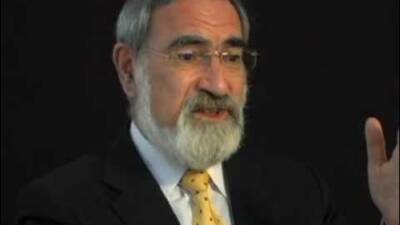
Rabbi Sacks on a Family Story
JInsider (March 2010)
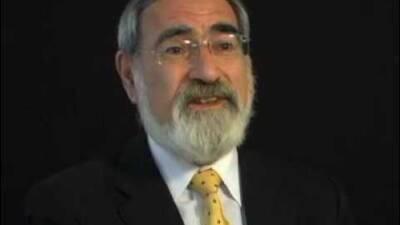
On the Internet and Judaism
JInsider (March 2010)
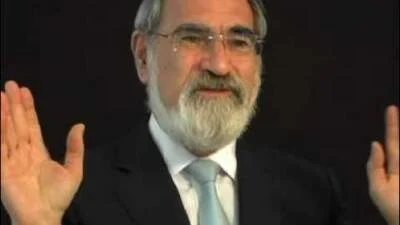
Rabbi Sacks on Plato's Ghost
JInsider (March 2010)
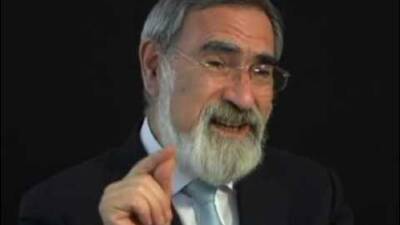
Rabbi Sacks on Optimism vs. Hope
JInsider (March 2010)
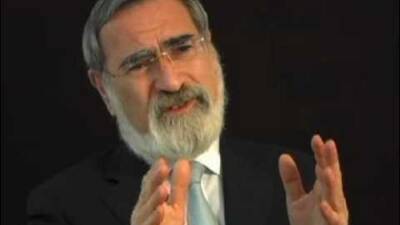
Rabbi Sacks on Victim Mentality
JInsider (March 2010)
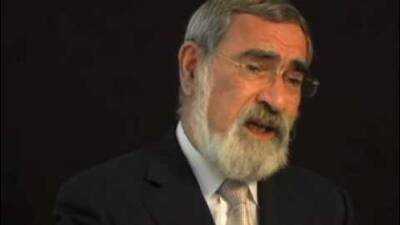
Rabbi Sacks on Jerusalem
JInsider (March 2010)
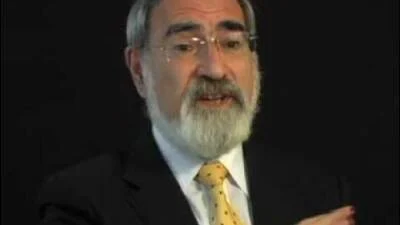
Rabbi Sacks on Advice for our Times
JInsider (March 2010)
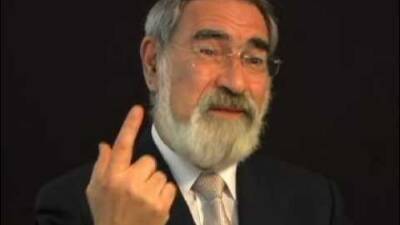
Rabbi Sacks on Fundamentalism
JInsider (March 2010)
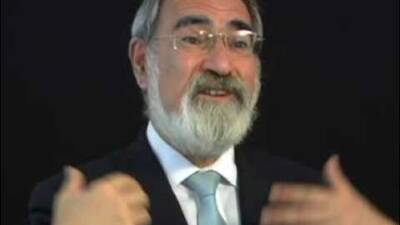
Rabbi Sacks on Time
JInsider (March 2010)
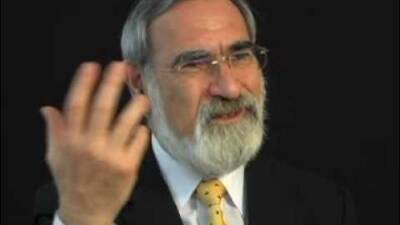
Rabbi Sacks on the Chosen People
JInsider (March 2010)
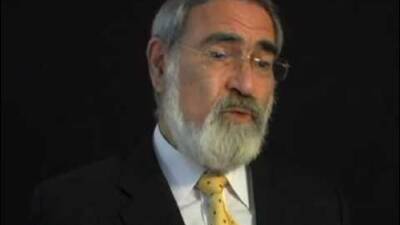
Rabbi Sacks on 21st Century Israel
JInsider (March 2010)
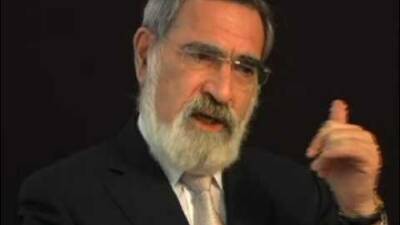
Rabbi Sacks on the Origins of Antisemitism
JInsider (March 2010)
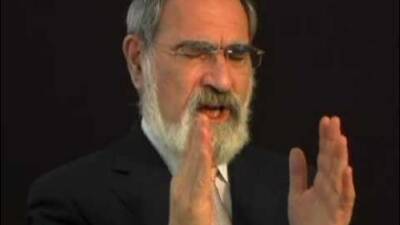
Rabbi Sacks on Understanding Jewish Exile
JInsider (March 2010)
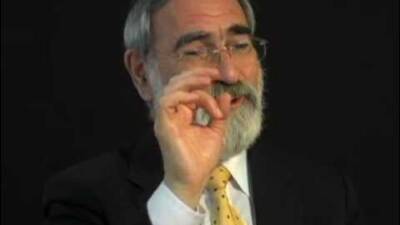
Rabbi Sacks on Anger
JInsider (March 2010)
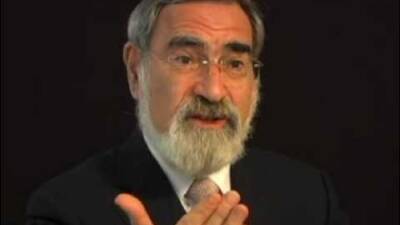
Rabbi Sacks on the Historical Evolution of Antisemitism
JInsider (March 2010)
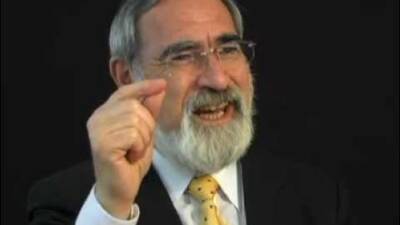
Rabbi Sacks on Interfaith Relations
JInsider (March 2010)
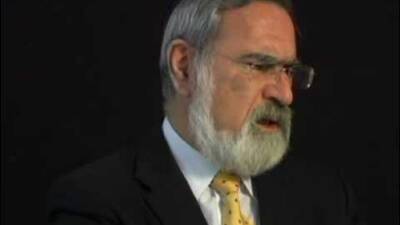
Rabbi Sacks on Coincidence and Providence
JInsider (March 2010)
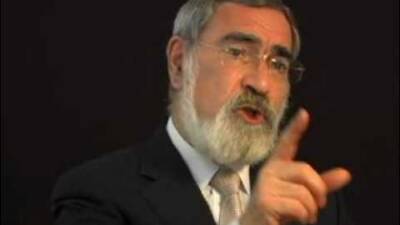
Rabbi Sacks on Free Will
JInsider (March 2010)
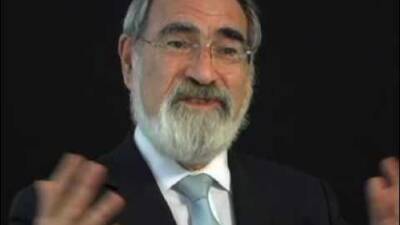
Rabbi Sacks on Family and Marriage
JInsider (March 2010)
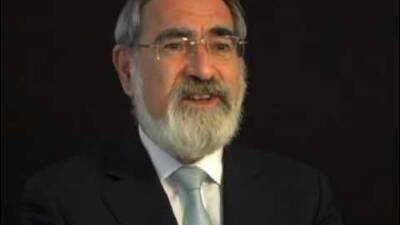
Rabbi Sacks on Tzedakah Defined
JInsider (March 2010)
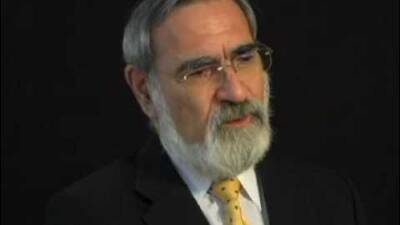
Rabbi Sacks on Daily Life
JInsider (March 2010)
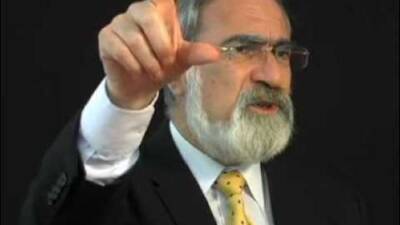
Rabbi Sacks on Being Jewish
JInsider (March 2010)

Rabbi Sacks on his Personal Rebbe, Rabbi Nachum Rabinovitch
JInsider (March 2010)
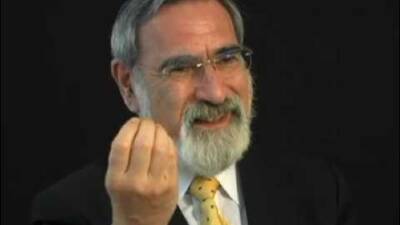
Rabbi Sacks on Connecting to God
JInsider (March 2010)
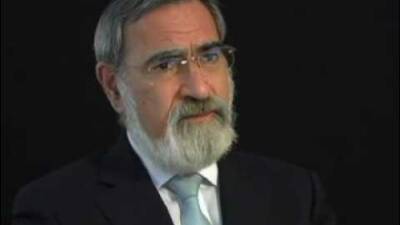
Rabbi Sacks on Dialogue with Atheists
JInsider (March 2010)
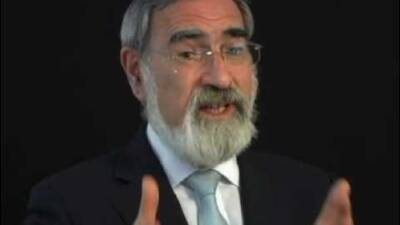
Rabbi Sacks on Doubt
Jinsider (March 2010)
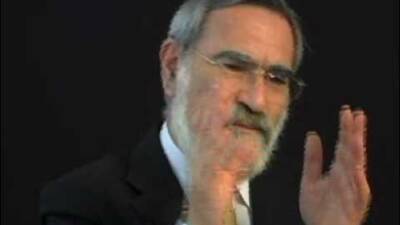
On Tikkun Olam
JInsider (March 2010)
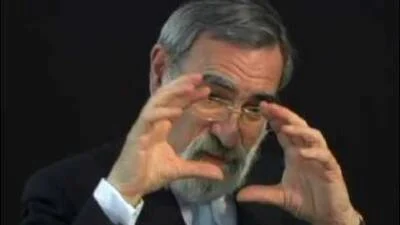
Rabbi Sacks on a Response to Atheism
JInsider (March 2010)
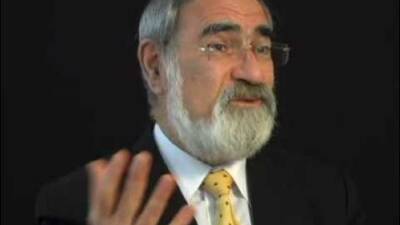
Rabbi Sacks on Finding Purpose
JInsider (March 2010)
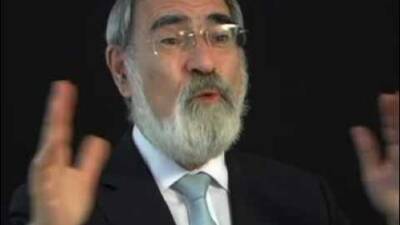
Rabbi Sacks on a Responsible Life - Example
JInsider (March 2010)
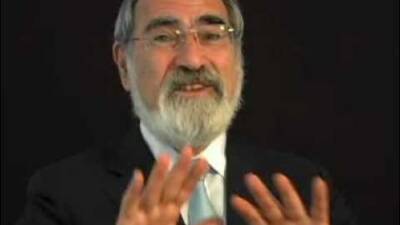
Rabbi Sacks on the Dignity of Difference - Part 2
JInsider (March 2010)
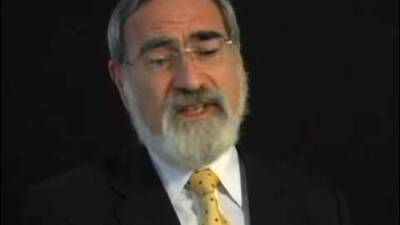
Rabbi Sacks on the Dignity of Difference - Part 1
JInsider (March 2010)
